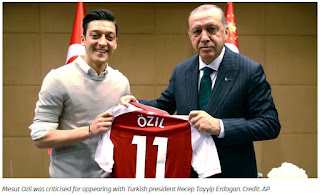129 seniors took their own lives last year, even as figures dropped for other age groups
By Rahimah Rashith, The Straits Times, 30 July 2018
The number of seniors taking their own lives hit a record high last year even as the total number of suicides dipped - raising concerns among counsellors that seniors may not be getting access to the support they need.
According to a breakdown of government statistics provided by suicide prevention agency Samaritans of Singapore (SOS), 129 people aged 60 and above committed suicide last year - the highest number recorded for this age group since suicide numbers began to be tracked in 1991.
The suicide figures for every other age group fell and the total of 361 suicides reported last year was 15.8 per cent lower than the 429 in 2016.
That meant that the proportion of suicides committed by those aged 60 and above - typically somewhere between 25 and 30 per cent each year - hit 35.7 per cent last year.
"It is very worrying that many of the elderly are turning to suicide as the only choice to end their pain and struggles, when they should be enjoying the lustre of their golden years," said Ms Christine Wong, executive director of SOS.
"With the elderly population in Singapore increasing steadily, suicides in this population may be expected to continue rising."
Another cause for concern: usage patterns of SOS' 24-hour hotline showed that calls made by seniors dropped by 18 per cent - from 6,904 calls in 2016 to 5,652 calls last year.
Said Ms Wong: "We need to find out the barriers that prevent them from getting through to SOS, and if they know where and what are the other available help resources."
By Rahimah Rashith, The Straits Times, 30 July 2018
The number of seniors taking their own lives hit a record high last year even as the total number of suicides dipped - raising concerns among counsellors that seniors may not be getting access to the support they need.
According to a breakdown of government statistics provided by suicide prevention agency Samaritans of Singapore (SOS), 129 people aged 60 and above committed suicide last year - the highest number recorded for this age group since suicide numbers began to be tracked in 1991.
The suicide figures for every other age group fell and the total of 361 suicides reported last year was 15.8 per cent lower than the 429 in 2016.
That meant that the proportion of suicides committed by those aged 60 and above - typically somewhere between 25 and 30 per cent each year - hit 35.7 per cent last year.
"It is very worrying that many of the elderly are turning to suicide as the only choice to end their pain and struggles, when they should be enjoying the lustre of their golden years," said Ms Christine Wong, executive director of SOS.
"With the elderly population in Singapore increasing steadily, suicides in this population may be expected to continue rising."
Another cause for concern: usage patterns of SOS' 24-hour hotline showed that calls made by seniors dropped by 18 per cent - from 6,904 calls in 2016 to 5,652 calls last year.
Said Ms Wong: "We need to find out the barriers that prevent them from getting through to SOS, and if they know where and what are the other available help resources."












